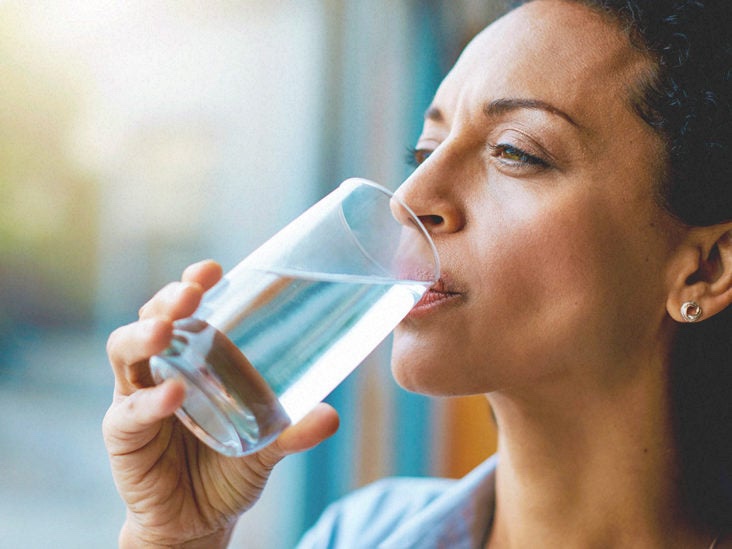Water is essential for our overall health and well-being. It plays a vital role in various bodily functions, including regulating body temperature, lubricating joints, aiding digestion, and maintaining healthy skin. But how much water should you drink each day to stay properly hydrated? In this article, we will explore the recommended daily water intake and factors that can influence your hydration needs.

Understanding Daily Water Intake: The exact amount of water needed varies from person to person, depending on several factors such as age, weight, activity level, climate, and overall health. However, a general guideline often recommended is to drink about eight 8-ounce glasses of water per day, also known as the “8×8 rule.” This equates to roughly 2 liters or half a gallon of water.
Factors Influencing Hydration Needs: While the 8×8 rule provides a basic guideline, it’s important to consider individual circumstances that may increase or decrease your hydration requirements. Here are some factors to consider:
- Physical Activity: Engaging in exercise or activities that cause sweating increases your water loss and therefore requires additional fluid intake to replenish the lost fluids.
- Climate: Hot and humid weather can lead to increased sweating, leading to higher water loss. If you live in a warm climate or spend time outdoors in hot weather, you may need to increase your water intake.
- Body Weight: Generally, larger individuals may require more water than those who are smaller in size. Body weight can influence the amount of water needed to maintain proper hydration.
- Health Conditions: Certain health conditions, such as kidney or urinary tract issues, may require increased water intake as recommended by healthcare professionals. It’s important to follow any specific guidelines provided by your healthcare provider.
- Pregnancy or Breastfeeding: Women who are pregnant or breastfeeding often have increased fluid needs to support their own health and the needs of the developing baby or nursing infant.
Monitoring Hydration: While the 8×8 rule and general guidelines are a good starting point, it’s essential to listen to your body and pay attention to signs of dehydration. These may include feelings of thirst, dry mouth, dark-colored urine, fatigue, dizziness, or decreased urine output. Remember that individual hydration needs may vary, so adjust your water intake accordingly based on your specific circumstances and any recommendations from healthcare professionals.
Incorporating Hydration Habits: To ensure adequate hydration throughout the day, consider the following tips:
- Carry a Water Bottle: Keep a reusable water bottle with you at all times to make it convenient to sip water throughout the day.
- Set Reminders: Use smartphone apps or set reminders to prompt you to drink water at regular intervals.
- Infuse Flavor: If you find plain water unappealing, infuse it with fruits, herbs, or cucumbers to add a refreshing taste.
- Eat Water-Rich Foods: Many fruits and vegetables have high water content, such as watermelon, cucumbers, and oranges. Incorporating these foods into your diet can contribute to your overall hydration.
- Stay Consistent: Make drinking water a habit by incorporating it into your daily routine, such as having a glass of water with meals or drinking water before and after physical activity.
Proper hydration is vital for maintaining good health and well-being. While the recommended daily water intake is around eight 8-ounce glasses, individual hydration needs may vary based on factors like activity level, climate, and personal circumstances. Pay attention to your body’s signals and adjust your water intake accordingly. By staying hydrated and developing healthy hydration habits, you can support your overall wellness and ensure your body functions optimally.
As an Amazon Associate we earn from qualifying purchases through some links in our articles.




